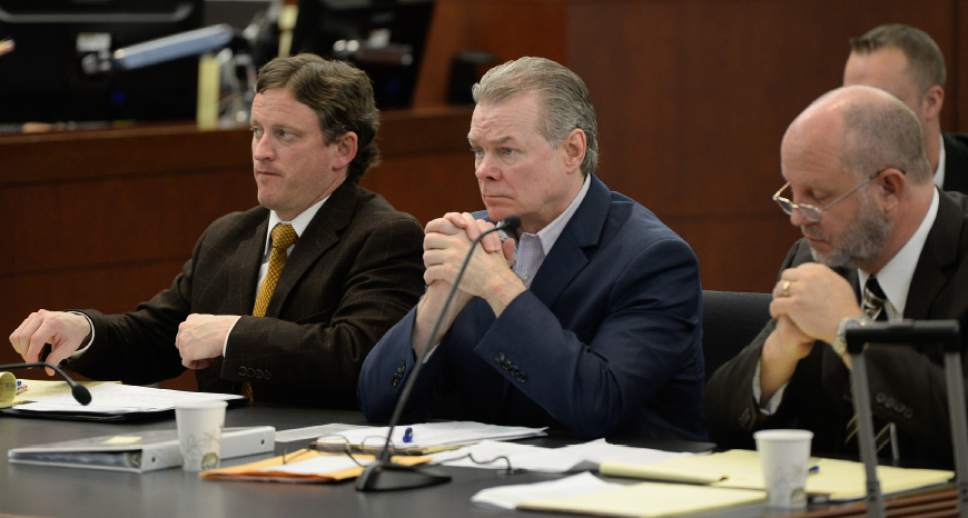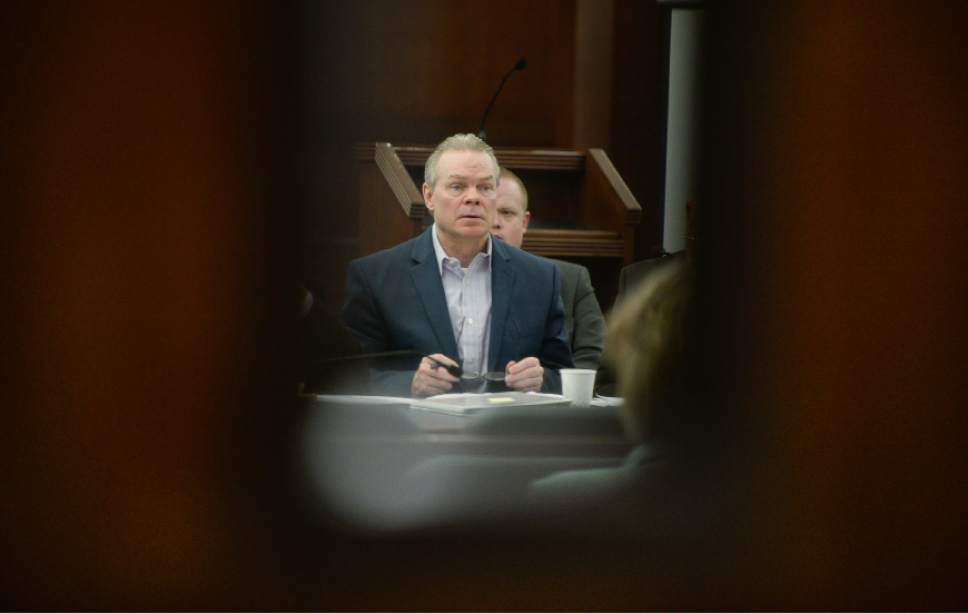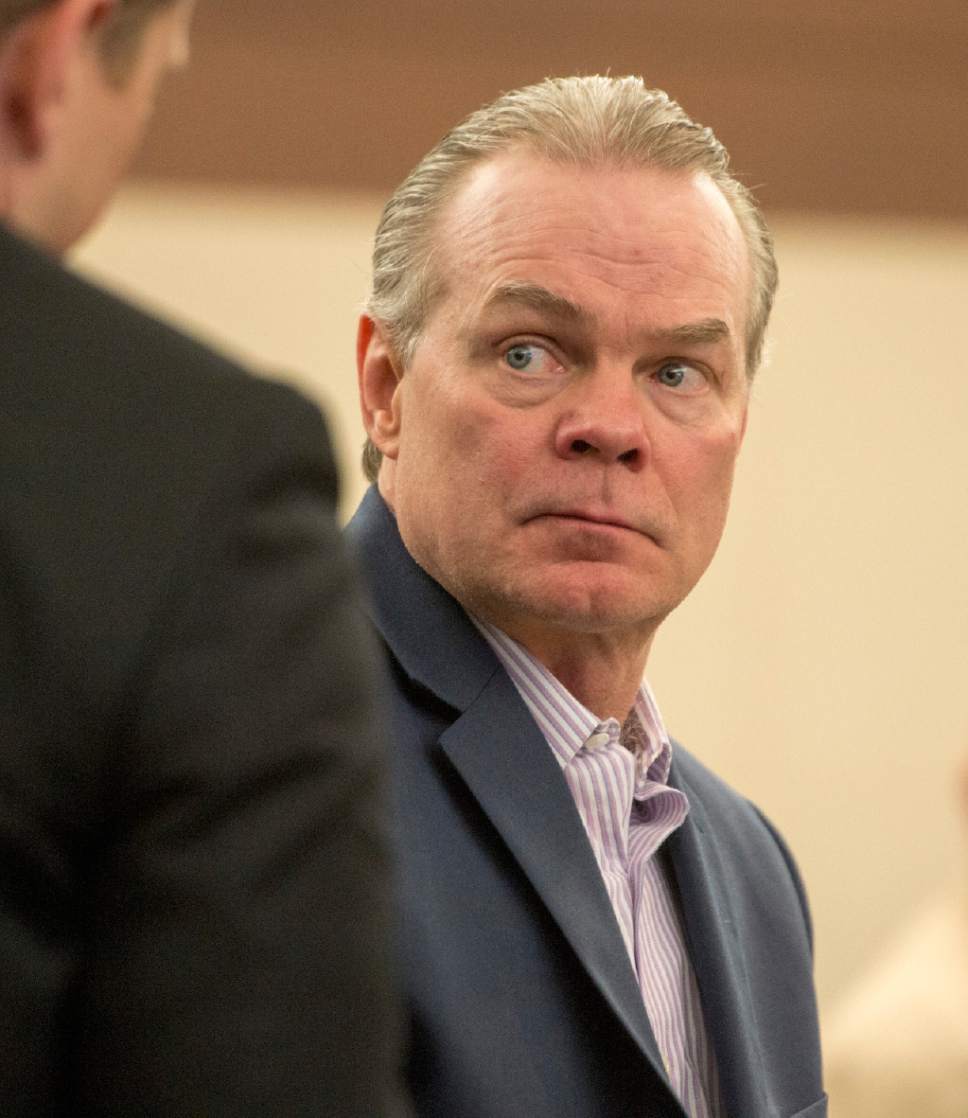This is an archived article that was published on sltrib.com in 2017, and information in the article may be outdated. It is provided only for personal research purposes and may not be reprinted.
After raising questions about his defense attorney's performance in a 2015 capital murder trial, death row inmate Douglas Lovell will have his case heard before a lower court once again, the Utah Supreme Court ruled.
In a decision released this week, the high court remanded Lovell's case back to the district court for an evidentiary hearing. At that hearing, a 2nd District judge will determine whether one of Lovell's court-appointed attorneys "performed deficiently" by failing to adequately prepare witnesses, by not calling certain witnesses to testify on Lovell's behalf and by not objecting to purported interference by lawyers representing The Church of Jesus Christ of Latter-day Saints.
Lovell's appellate attorney, Samuel Newton, requested the hearing as he mounts an ineffective-assistance-of-counsel claim. State attorneys did not object to the hearing, according to the Monday ruling. No court dates had been set as of Friday.
Lovell is appealing the outcome of his 2015 trial, in which jurors sentenced him to be executed for killing 39-year-old Joyce Yost in 1985. In his appeal, Lovell accused the Mormon church and its attorneys of meddling in his trial by telling his former bishops not to testify or to limit what they said on the stand.
The defendant wrote in an affidavit that a former mentor came to him in tears on the eve of his 2015 trial, asking the inmate to not call him as a character witness. The man told Lovell that a "member above him" in the church told him he could not testify.
Four other bishops and a woman serving an LDS mission at the time of the trial also reported they were told to either not testify or give only short answers, so it would not appear they were representing the church — which has a neutral stance on the death penalty — while approving of a murderer. LDS church officials have said any limitations to witness testimony were agreed to by the church and Lovell's trial attorneys.
Newton alleges in court papers that trial attorney Sean Young failed to object to this interference from the Mormon church. Newton also asserts that Young did not properly prepare mitigation witnesses, and did not contact a number of witnesses who wished to testify on Lovell's behalf during the penalty phase of the trial.
Lovell's lead trial attorney, Michael Bouwhuis, wrote in an affidavit that Young, his co-counsel, was assigned to interview and prepare 18 witnesses, including former church members, Lovell's family members, and an inmate who said Lovell positively affected his life.
Of those 18, only two have said that they were contacted by Young before trial — but the conversations were brief and mostly concerned when they would testify, not the substance of what they would say.
Young's public defender contract was terminated after Lovell's trial, according to Bouwhuis and county officials.
In April 1985, Lovell followed Yost home from a Clearfield restaurant, kidnapped her from her apartment parking lot and sexually assaulted her in the parking lot and at his home, according to trial testimony.
After she reported the crime, Lovell began to plot the woman's death to keep her from testifying at his upcoming trial, according to testimony. He tried twice to hire men to kill the woman, then decided to do it himself on Aug. 10, 1985.
He kidnapped the woman again from her apartment and took her to the mountains east of Ogden, where he strangled her and left her body under handfuls of dirt and leaves.
Yost's body was never found — despite an extensive search of the area by police in 1993, after Lovell struck a plea deal that spared him the death penalty if he could lead authorities to her remains.
After the fruitless 1993 search, an Ogden judge sentenced Lovell to death by lethal injection. But, in 2011, the Utah Supreme Court ruled Lovell could withdraw his guilty plea because he should have been better informed of his rights during court proceedings.







